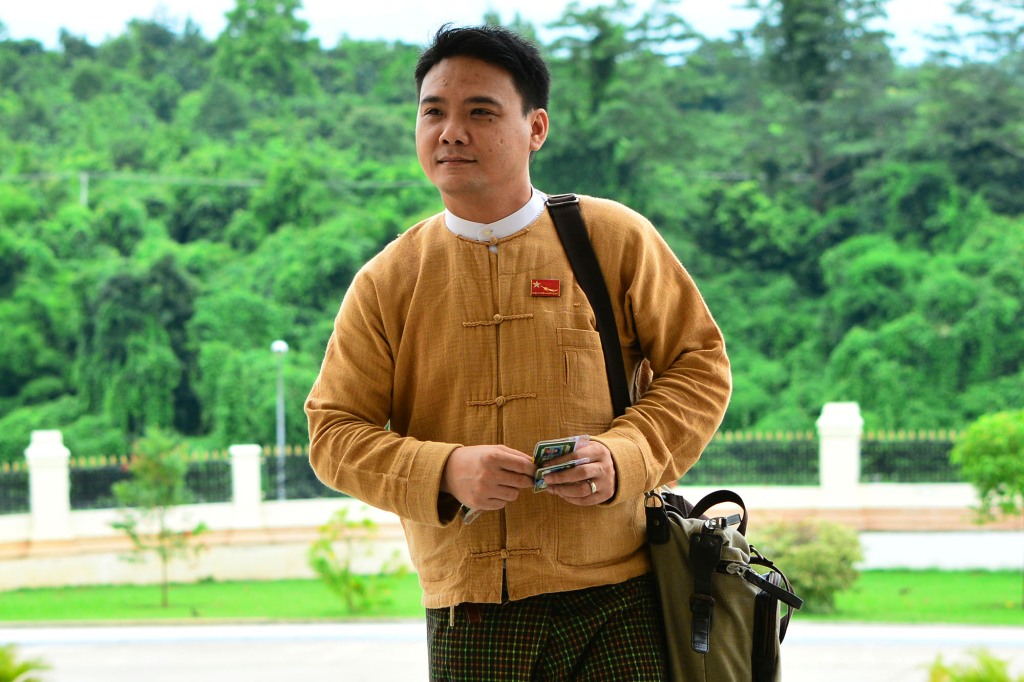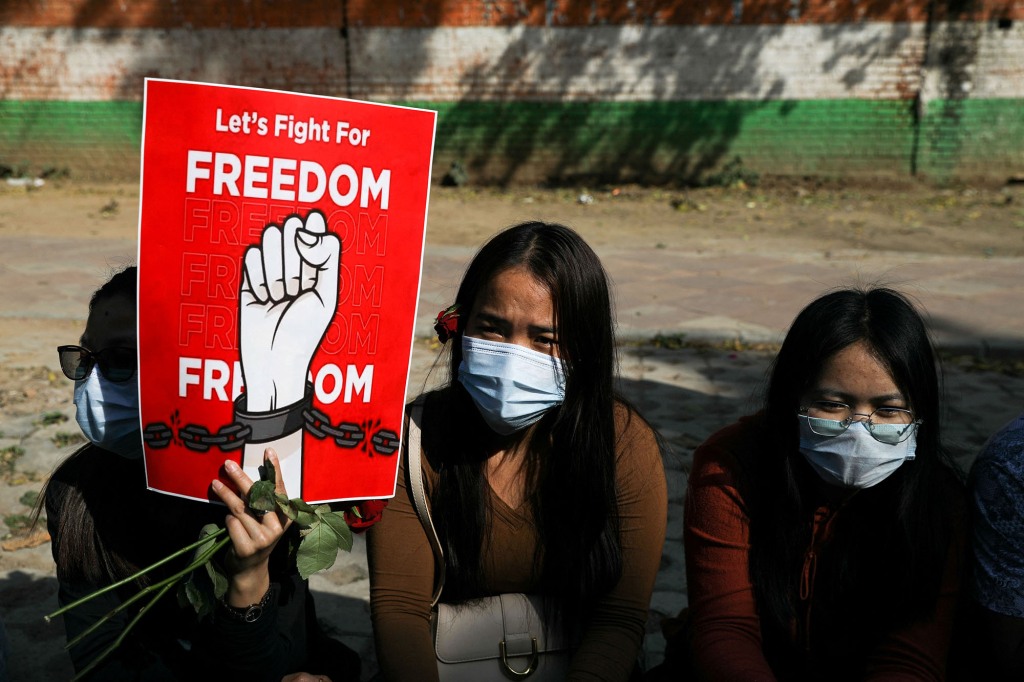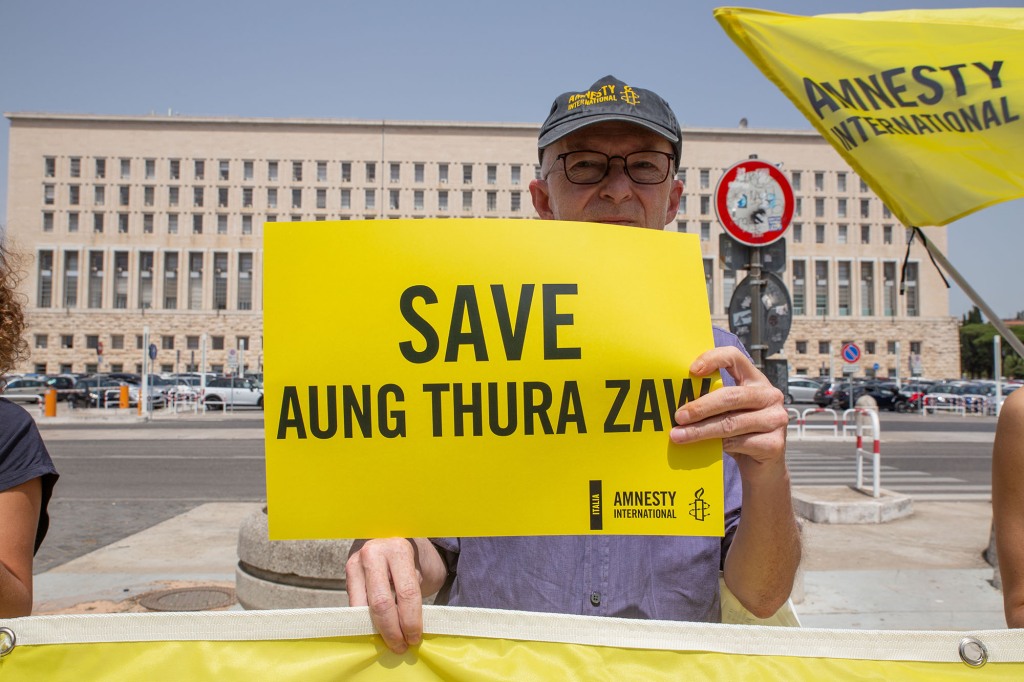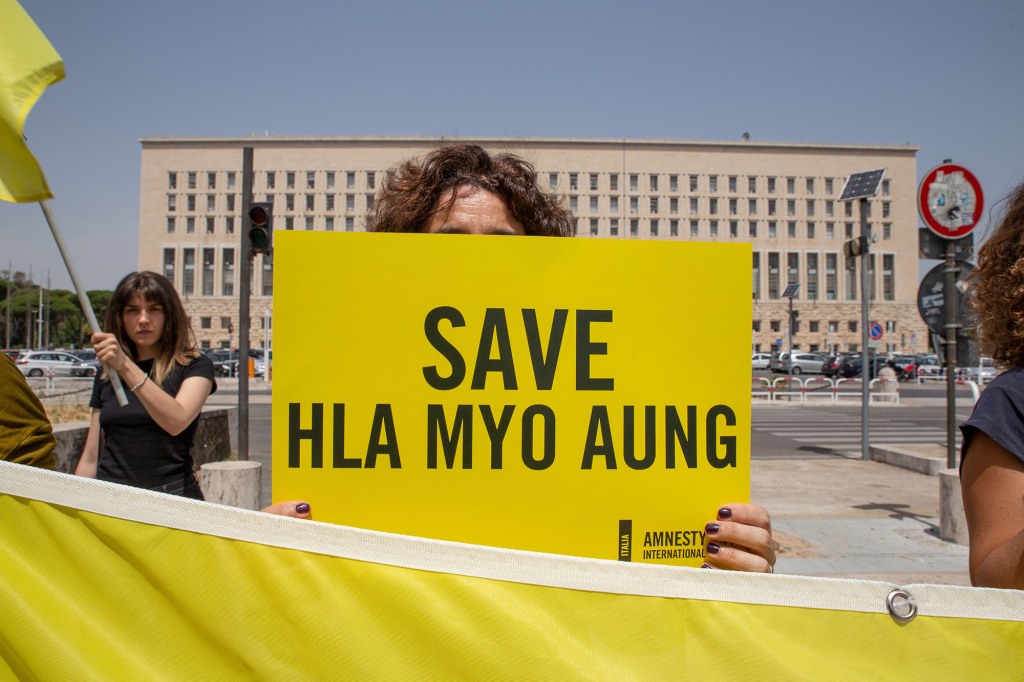Myanmar junta condemned for execution of 4 democracy activists
Myanmar’s ruling military has executed four democracy activists accused of helping to carry out “terror acts,” it said Monday, sparking widespread condemnation of the Southeast Asian nation’s first executions in decades.
Sentenced to death in closed-door trials in January and April, the men had been accused of helping a resistance movement to fight the army that seized power in a coup last year and unleashed a bloody crackdown on its opponents.
Myanmar’s National Unity Government (NUG), a shadow administration outlawed by the junta, called for international action against the military.
“The global community must punish their cruelty,” Kyaw Zaw, the spokesman of the NUG president’s office, told Reuters in a text message.
Among those executed were democracy campaigner Kyaw Min Yu, better known as Jimmy, and former lawmaker and hip-hop artist Phyo Zeya Thaw, the Global New Light of Myanmar newspaper said.
Kyaw Min Yu, 53, and Phyo Zeya Thaw, a 41-year-old ally of ousted leader Aung San Suu Kyi, lost their appeals against the sentences in June. The two others executed were Hla Myo Aung and Aung Thura Zaw.
“These executions amount to arbitrary deprivation of lives and are another example of Myanmar’s atrocious human rights record,” said Erwin Van Der Borght, regional director of rights group Amnesty International.
“The four men were convicted by a military court in highly secretive and deeply unfair trials.”
Thazin Nyunt Aung, the wife of Phyo Zeyar Thaw, said by telephone prison officials had not let the families retrieve the bodies.

The men had been held in the colonial-era Insein prison and a person with knowledge of the events said their families visited it last Friday.
Only one relative was allowed to speak to the detainees via an online platform, the source added.
“I asked (prison officials) why didn’t you tell me or my son that it was our last meeting… I feel sad about it,” Khin Win Tint, the mother of Phyo Zeyar Thaw, told BBC Burmese.
State media reported the executions on Monday and junta spokesman Zaw Min Tun later confirmed the sentences to the Voice of Myanmar. Neither gave details of the timing.
Previous executions in Myanmar have been by hanging.
An activist group, the Assistance Association of Political Prisoners (AAPP), said Myanmar’s last judicial executions were in the late 1980s and that since the coup 117 people had been sentenced to death.
International outcry

The junta spokesman last month defended the death penalty, saying it was justified and used in many countries.
Cambodian Prime Minister Hun Sen, chair of the Association of Southeast Asian Nations (ASEAN), appealed in a letter in June to junta chief Min Aung Hlaing not to carry out the executions, relaying deep concern among Myanmar’s neighbors.
“Not even the previous military regime, which ruled between 1988 and 2011, dared to carry out the death penalty against political prisoners,” said Malaysian lawmaker Charles Santiago, chair of the ASEAN Parliamentarians for Human Rights.
Japanese Foreign Minister Yoshimasa Hayashi said the executions went against Japan’s repeated urging for a peaceful resolution and release of detainees, and would further isolate Myanmar.

The US embassy in Yangon condemned the executions of “pro-democracy leaders and elected officials”.
China’s foreign ministry urged all parties in Myanmar to properly resolve conflicts within its constitutional framework.
Myanmar has been in chaos since last year’s coup, with conflict spreading nationwide after the army crushed mostly peaceful protests in cities.
The AAPP says more than 2,100 people have been killed by security forces since the coup. The junta says that figure is exaggerated.

The true picture of violence has been hard to assess as clashes have spread to more remote areas where ethnic minority insurgent groups are also fighting the military.
The executions have shattered hopes of any peace agreement, said the Arakan Army (AA), a major ethnic militia in Myanmar’s restive Rakhine State.
Last Friday, the World Court rejected Myanmar’s objections to a genocide case over its treatment of the Muslim Rohingya minority, paving the way for a full hearing.
The latest executions close off any chance of ending unrest in Myanmar, said analyst Richard Horsey, of the International Crisis group.
“This is the regime demonstrating that it will do what it wants and listen to no one,” Horsey said. “It sees this as a demonstration of strength, but it may be a serious miscalculation.”
Read the full article Here


